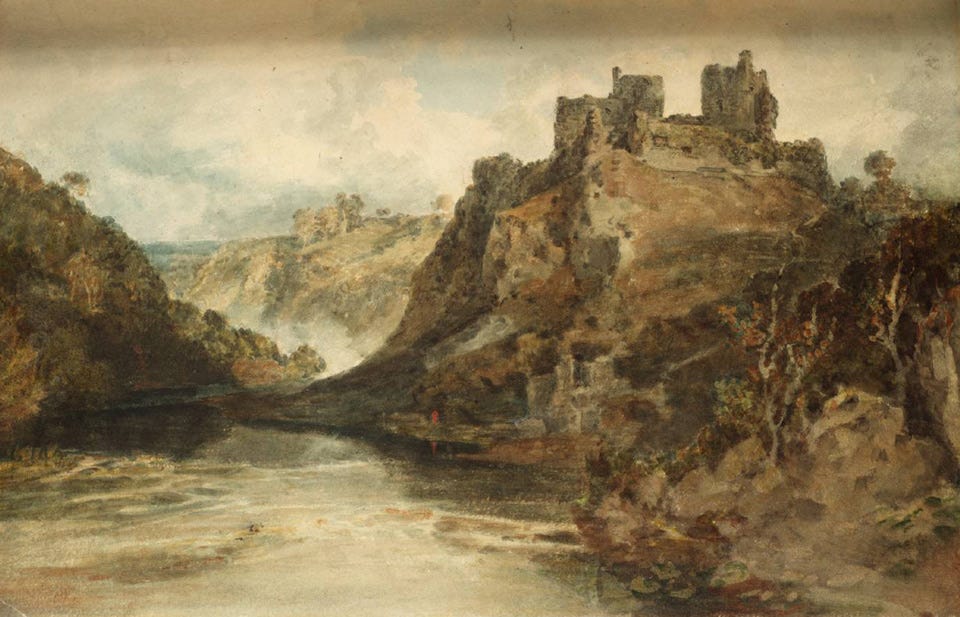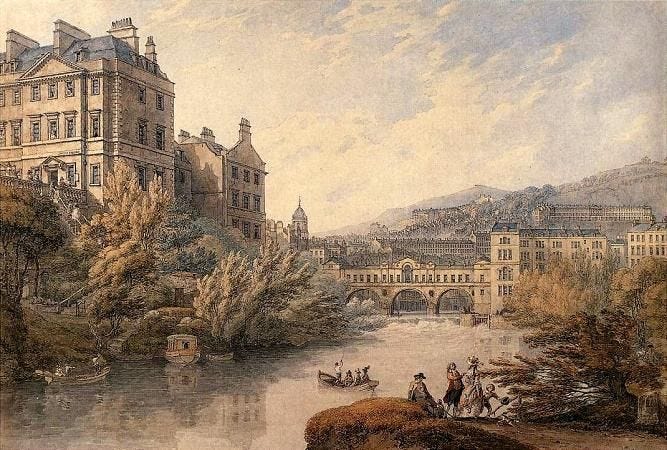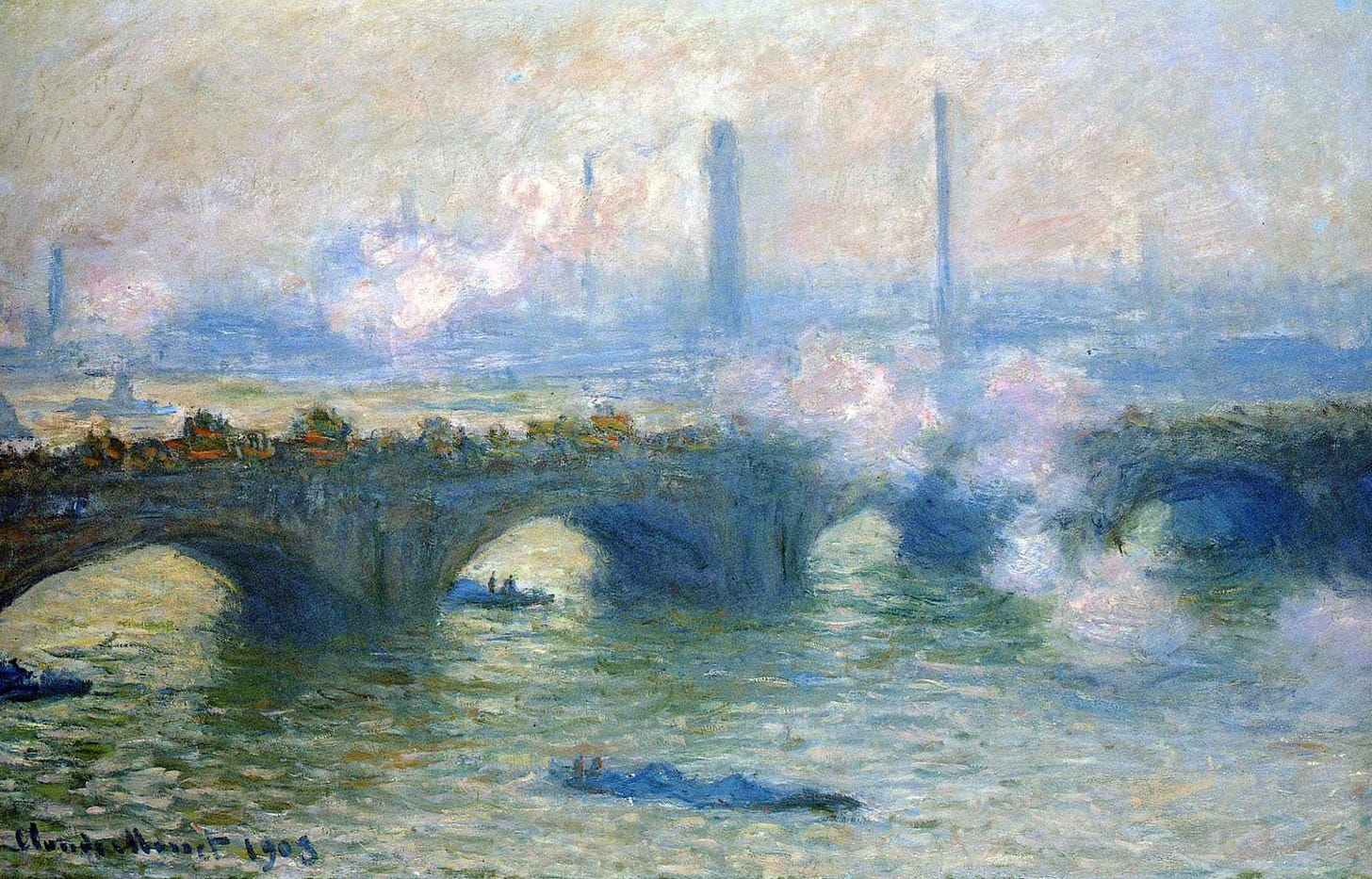How do I Get Better at Writing?
Observations from a trip around the world to learn from the epic writers of the western tradition.
The beauty of good literature is found in the writer’s ability to see what others miss. To say what others think and have experienced, but have no words to say. To pay attention to the simple and be inspired by the mundane. To access wonder in the middle of the everydayness of life. To say let there be…because our God has already said exactly that.
I’ve spent the last two weeks with my DMin cohort going to writerly places. Locations all over the UK that have been the birthplaces and graves of writers known the world over. We visited the tiny homes they grew up in and the lush parks in which they walked and played as children. We saw the museums in their honor and walked on streets that bear their names.
What surprised me most was how simple and mundane their lives and inspirations were. To dream up the Shire or Narina from a large glade of soft grass is as surprising as it is inspiring. How often do we search for the extraordinary to inspire? Failing to act because our story, our song, and our art are too simple. We fail to allow our imagination to transform the ordinary into the otherworldly. We need better stories and stronger imaginations.
Men and women unconcerned with fame but obsessed with story and craft. Whose faithful work inspired and inspires. Writers like Hopkins were tortured by loneliness and wrote from a place of sorrow. Deep wells where he found God’s grace deeper still. Austin, who grew up in the home of a minister whose lessons informed her understanding of the world. Tolkien, who used the created stuff of earth to sub-create a world of his own making that came from the neighbors on his street to the dwarves who lived and worked in his backyard. Lewis was shaped by the simplicity of the Irish landscape, the sorrows of a lost mother, and a world changed with the magic of God’s making.
In pastoral ministry, there is a lot of talk about calling, and for good reason. The work you do as a pastor is difficult and sacred. If you are not called to do the work of pastoral ministry, you will burn up and burn out. I must know that there is grace for my work, I must know that others see a speck of my ability, and I must work hard to produce something that reflects the beauty, the goodness, and the truth of the one who gave me everything I have. What I discovered on this writing pilgrimage, as I begin this new vocation of writing, is that, like pastoral ministry or any vocation God calls you to, there must be grace and gifting, and it requires time and effort from us.
What each writer we encountered did was simply pay attention to their life. Our lives are a blur of activity and digital reality. Children taken to practice, updates from friends on the socials, breaking news, and breaking hearts. While trying to achieve and often simply survive, we miss the point. There is no mundane or commonplace. No ordinary or simple. Everything is charged with the presence of God.
There is no event so commonplace but that God is present within it, always hiddenly, always leaving you room to recognize him or not to recognize him, but all the more fascinatingly because of that, all the more compellingly and hauntingly.
Fredrick Buechner
What Buechner is saying here is that God creates this world and sustains it. Because it reflects Him and draws our eyes to him, we need to pay attention. We need to slow down and see what's happening around us, to us, and in us, Buechner continues.
Listen to your life. See it for the fathomless mystery that it is. In the boredom and pain of it no less than in the excitement and gladness: touch, taste, smell your way to the holy and hidden heart of it, because in the last analysis all moments are key moments, and life itself is grace. What I started trying to do as a writer and as a preacher was more and more to draw on my own experience, not just as the source of plot, character, illustration, but as a source of truth…The shadows themselves contain treasures if you keep your eyes open.
Fredrick Buechner
Pay attention to your life. It is in the mundane, the slow, the uneventful that the magic of life lies. So often in our lives, we try to make something happen. We try to be the catalyst for our own joy. We seek to fill our lives with work and frivolity to make things happen because we think activity and excitement are the stuff of life. They aren’t. It’s a lie we believe with every like, thumbs up, and heart we send.
What I am learning in this new vocation of mine is to do exactly that. Write what is real and true because that is what makes up our lives together. To point out the beauty around us, because beauty has a home.
Know what you are called to do. Do it with joy. Do it with the simple, ordinary obedience that Christ’s call demands. Listen to your life. Write, draw, preach, mother, father, lawyer, teach, clean, listen, care, drive, and lead for the good of this world and the glory of God alone.
Here are six quick things that stood out to me on my DMin Cohort trip to England and Wales.
The mundane parts of life are the stuff that make magic.
Faithfulness trumps cleverness.
Pay attention. Because the earth is changed with the grandeur of God, and we will miss it if we are looking for the spectacular.
No man or woman is ever a self-made success; we are the byproduct of our situation. We all need friends, and our friends make us better if we let them.
Fame in this life is not more important than obedience in all of life.
Write every day, be faithful and consistent. Daily offer back to God the gift that came to you from him.
Start your day with prayers of sacrifice and end each day with prayers of thanksgiving, regardless of what you see or don’t see. Regardless of answers received. Our life is a vapor, and our God is at work. Rejoice when you have no reason to rejoice, because you do.







Thank you for sharing so beautifully in a way that makes me weep and causes me to read it over and over again.